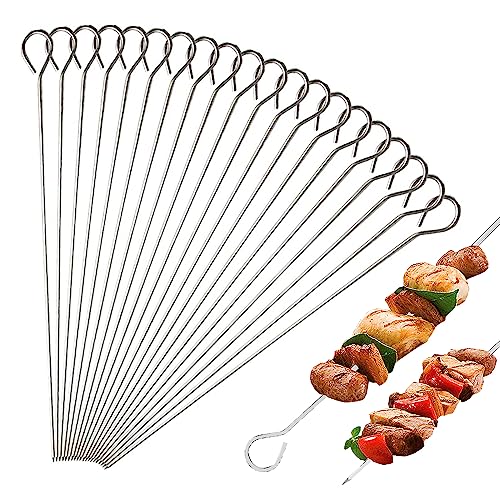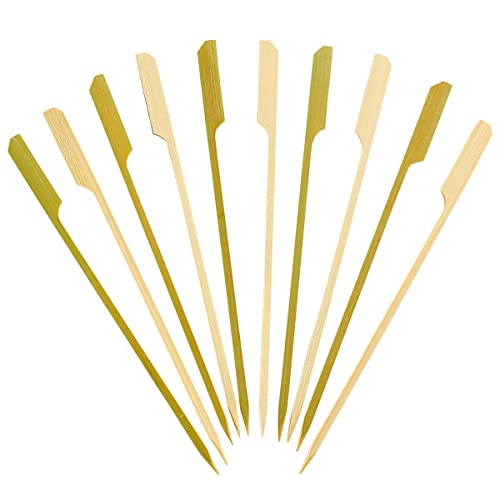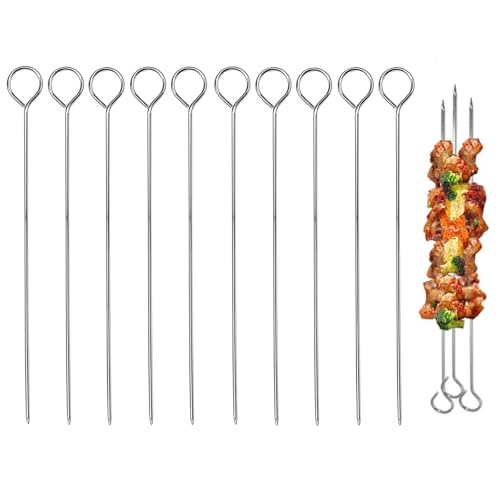Understanding Skewers: Types and Materials Explained
Types of Skewers
When we think of skewers, the first vision is often of kebabs sizzling on the grill. However, skewers come in various types, tailored for different cooking needs and styles. The most common types are metal skewers, which are durable and reusable, and wooden skewers, typically used for their convenience and disposability. Metal skewers often have a flat design that prevents food from spinning, making it easier to cook evenly. On the other hand, wooden skewers need to be soaked in water before use to prevent burning but offer a great option for grilling smaller items.
Materials Used in Skewers
Skewers are made from a variety of materials, each serving a different purpose. Stainless steel skewers are favoured for their strength and longevity, making them a great investment for regular grillers. Bamboo skewers are popular for their lightweight nature and affordability, ideal for casual barbecues. Additionally, there are silicone-coated options available, which provide a non-stick surface and easy handling. The choice of material can influence how well your food cooks, so it’s important to choose wisely based on your cooking habits.
Choosing the Right Skewer for Your Cooking Style
Assessing Your Cooking Method
Evaluating our cooking style is essential in selecting the right skewer. If we often grill or barbecue, stainless steel skewers are an excellent choice for their ability to withstand high temperatures without warping. For those who love to have friends over for a casual meal and enjoy making appetizers, bamboo skewers are convenient and great for finger food. If you are looking for something versatile that can be used in the oven or on the grill, consider investing in metal skewers.
Food Items to Consider
The type of food we plan to skewer also influences our choice. For larger pieces of meat like chunks of beef or chicken, sturdy metal skewers are ideal, providing the strength needed to pierce and hold heavier ingredients. For smaller items such as vegetables or shrimp, both wooden and metal skewers work well, but wooden ones may impart a subtle flavour that can enhance the dish. Remember that if we plan to skewer delicate items like cherry tomatoes, metal skewers may allow for finer control and easier turning.
Essential Tips for Using Skewers Effectively
Preparing Your Skewers
Before we start, the preparation of the skewers can make a world of difference. If we opt for wooden skewers, soaking them in water for 30 minutes before grilling is crucial. This simple step prevents charring and helps ensure that the food cooks without imparting a burnt taste. For metal skewers, a light brush of oil can help prevent sticking, especially with foods like cheese or mushrooms.
Arranging the Ingredients
How we arrange the food on the skewer can affect cooking times and flavours. It’s best to alternate between meats and vegetables to allow for even cooking. Cutting ingredients into uniform sizes will ensure everything cooks at the same rate, saving us from overcooking one item while waiting for another to finish. Keep in mind that small gaps between pieces provide better airflow, which helps them grill evenly.
How to Clean and Maintain Your Skewers
Cleaning Metal Skewers
After a delicious meal, the cleaning process for metal skewers is straightforward. Simply place them in warm soapy water and let them soak for a few minutes to loosen any food particles. Following this, a gentle scrub with a sponge or cloth will do the trick. Metal skewers are often dishwasher-safe, making upkeep easy for busy cooks. Always dry them completely after cleaning to prevent rusting over time.
Maintaining Wooden Skewers
Wooden skewers require a bit more care. They should not be soaked for too long in water during cleaning, as this can weaken the wood. Instead, rinse them under running water and gently scrub them with a brush to remove any residue. Once cleaned, it’s advisable to store them in a cool, dry place to prevent mould or warping. With proper care, they can last through several uses.
Delicious Recipes to Try with Your Skewers
Classic Chicken and Veggie Skewers
For a classic recipe, marinate chunks of chicken breast in olive oil, garlic, lemon juice, and herbs. Pair these with colourful bell peppers, onions, and zucchini on skewers, and grill until the chicken is cooked through and the vegetables are tender. This combination not only looks appealing but also offers a delicious balance of flavours.
Tasty Shrimp Skewers
Shrimp skewers are an excellent choice for a quick meal or appetiser. Simply marinate shrimp in a mix of soy sauce, ginger, and garlic for about 30 minutes. Skewering them with pineapple chunks or bell pepper adds a delightful sweetness that balances the savoury shrimp. Grill on high heat for 2-3 minutes per side until the shrimp turns pink and opaque.






















